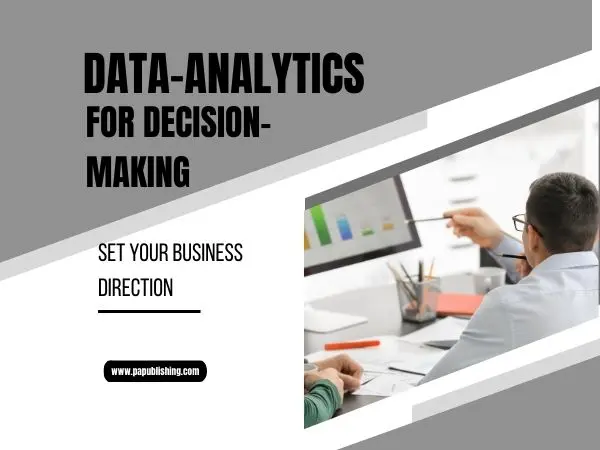How Data Analytics for Small Businesses Are Critical in Success
Modern times business strategies are competitive in nature, and they need modern implementations. Entrepreneurs simply just can’t lead businesses with a strong ‘gut’ feeling; properly executed decisions are required for growth. Data analytics for small business owners is a step towards profitability and success in the industry.
Through this article, we will dive into the benefits of decisions driven by data analytics and how data analytics shapes the decision-making for a strategic marketing plan.
What is Data Analytic Decision-Making?
In simple words, data analytic tools help obtain useful strategies and insights from the given information and allow one to devise a well-constructed plan for business growth. It ensures that decisions are not solely based on guts or guesswork. However, decisions taken under the influence of data analytics are key factors for substantial business policies.
Consider an example of a small retail business owner who evaluated the purchasing habits of its customers. Then, this business targeted marketing efforts with the given data of the most selling article and when it was purchased the most. This helped the business with valuable growth.
Adopting data analytics for small businesses in decision-making procedures decreases uncertainties and risks for businesses and identifies more opportunities.
Benefits of Using Data Analytics for Small Businesses
Data analytics used for decision-making not only provide small business owners with growth and profitability but also enhance the overall marketing strategy of the company. Listed are some of the benefits of data analytics for small businesses.
Helps in Understanding of Customer Behaviour
Data analytics helps analyze customer data, which unveils customer preferences and leads to more targeted marketing campaigns.
For example, a certain style of shoes was the most trendy article during the summer season by a small shoe business owner. By using data analytics, the preferred article was renewed in the same season according to customer preference. This enhances customer satisfaction and loyalty.
Elevated Risk Management
By incorporating data analytics, the business can easily handle the risks and threats that await them and enable them to take adequate measures to handle them beforehand.
Data analytic tools also help to foresee any fraud that may counter the company and mitigate the results.
Enhanced risk management protects the business from any costly consequences. Many small businesses go through bad patches just because of unawareness of an upcoming complication. Data analytics make sure to detect any problem arising beforehand.
Enhanced Market Insights
The business sector has become exceptionally competitive in this century. Social media market campaigns, TV commercials, and magazines have made it very difficult for new startups to compete in the industry.
Certainly, using data analytics for small businesses make sure that the company is running along with all the latest trends and competitor strategy.
Financial Management
New startups are driven by small investments, which leads the owners to choose opportunities that are cost-effective and simpler. Many small businesses suffer because of poor financial management and lack of insights. Utilizing data analytics for small businesses can provide owners with many possible shortcuts and solutions to deal with a tight budget.
Data analytics can also be a sort of financial audit of your business. These audits significantly contribute to the success of any business.
These data-driven insights highlight where a business can chop off additional costs. It also indicates the key sectors which need more attention due to their future potential.
Conclusion
Leveraging data analytic tools for decision-making is significantly beneficial for small businesses. It helps with elevated customer satisfaction, revenue growth, and useful patterns to boost the company’s growth.
However, data analytics for small businesses is not only gathering vast amounts of data and analyzing it. Using data analytic tools with good insights, adapting continuously from the industry, learning from mistakes, and shaping business policy accordingly will help to boost your business.
So, make sure you’re leveraging these tools correctly; otherwise, improper or incorrect decision-making can be fatal for your business.



